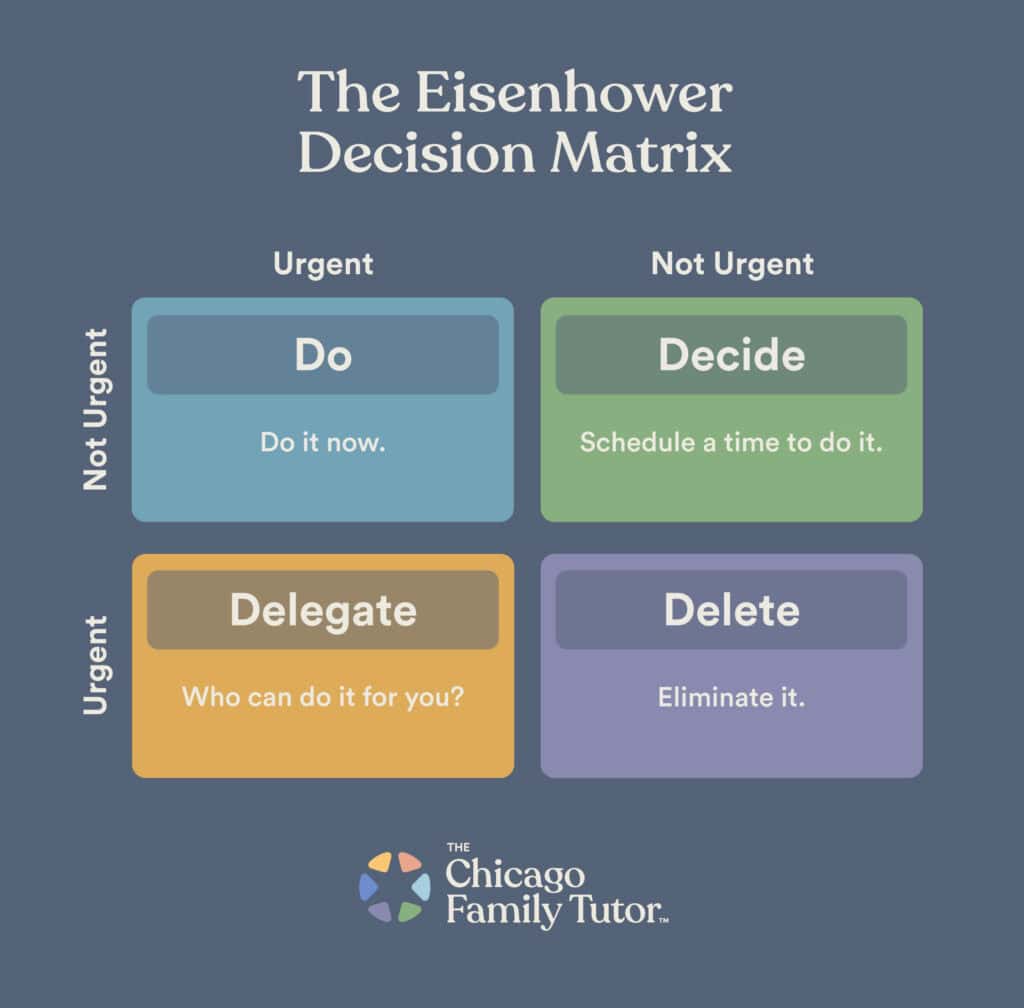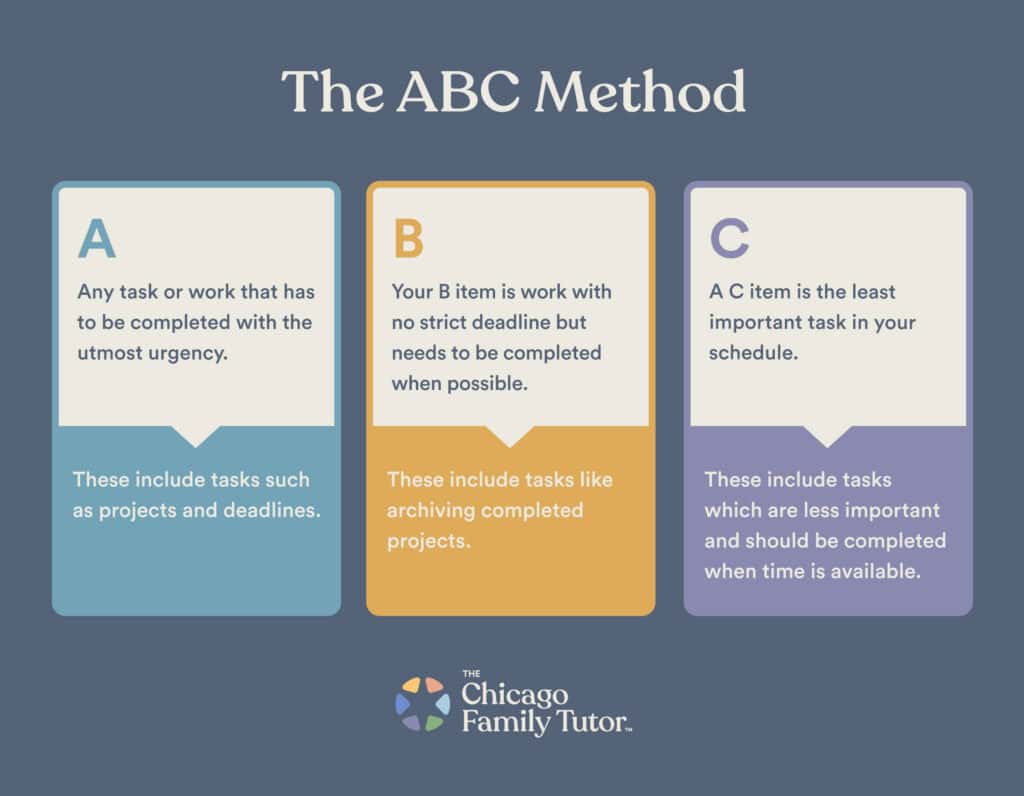Table of Contents
For those with ADHD, time management can be an ongoing challenge. This is because ADHD is but one of many conditions and diagnoses that impact executive functioning skills.
This umbrella term includes a wide range of skills such as planning, organizing, prioritizing, and getting started, all of which are crucial when it comes to time management.
But those with ADHD aren’t the only ones who struggle. Therefore, even if you have not received a formal diagnosis, you, too, can benefit from adopting the tips discussed below.
Understanding the Relationship Between ADHD, Executive Functioning, and Time Management
Attention Deficit Hyperactivity Disorder (ADHD), is a neurodevelopmental disorder that can be diagnosed in both children and adults. ADHD is characterized by persistent patterns of inattention, hyperactivity, and impulsivity. In other words, ADHD makes it more difficult to exercise one’s executive functioning skills.
Executive functioning skills are the set of cognitive processes that are essential for controlling behavior and managing time effectively. These include skills such as planning, organizing, prioritizing, working memory, and self-regulation. For individuals with ADHD, deficiencies in executive functioning can lead to significant challenges in time management. They might struggle with setting goals, creating and following schedules, breaking tasks into manageable steps, and staying focused amidst distractions.
ADHD affects approximately 5-7% of children and 2-5% of adults worldwide, so if you’re struggling, you’re not alone. The symptoms of ADHD can profoundly impact daily life, especially when it comes to managing time. Individuals with ADHD often face challenges such as chronic lateness, missed deadlines, and a general sense of overwhelm. These struggles can lead to a number of issues, including poor academic and job performance, strained relationships, and lowered self-esteem. Developing effective time management strategies is an important way to mitigate these challenges and improve overall quality of life.
Common Time Management Challenges for Those with ADHD
Procrastination significantly hinders time management for those with ADHD, as delaying tasks often results in last-minute rushes and missed deadlines. This tendency to postpone important activities stems from difficulties in prioritizing and initiating tasks, leading to an overwhelming backlog of responsibilities. Consequently, the stress and anxiety caused by procrastination further impair focus and productivity, creating a cycle that continuously disrupts effective time management.
Furthermore, individuals with ADHD often face significant challenges in setting goals and prioritizing tasks, which complicates time management. The difficulty in distinguishing between urgent and important tasks can lead to a scattered approach, where high-priority activities are neglected in favor of less critical ones. This lack of clear goal-setting and prioritization not only hampers progress but also increases the likelihood of important tasks being forgotten or ignored. Without a structured plan, those with ADHD may find themselves constantly reacting to immediate demands rather than proactively managing their time, resulting in inefficiency and frustration.
The absence of a plan is also one of many reasons that those with ADHD and time management deficits may struggle to maintain focus.The brain’s tendency to seek out new stimuli makes it hard to stay on task, leading to scattered attention and frequent interruption.
External distractions, like noise or visual clutter, and internal distractions, like racing thoughts or daydreaming, can derail productivity and delay completion. Frequent shifts in attention prevent sustained concentration that may compromise the quality of the work.
Finally, time-blindness, or difficulty in perceiving time accurately, may also contribute to time management troubles. Time blindness often leads to underestimating how long tasks will take, resulting in chronic lateness and an inability to adhere to schedules. People with ADHD might start tasks with the intention of completing them quickly, only to realize much later that hours have passed. This poor time estimation not only disrupts daily routines but also causes a ripple effect, where multiple tasks are delayed or missed altogether. The inability to gauge time effectively exacerbates feelings of frustration and stress, making it even harder to develop a consistent and reliable approach to time management.
Addressing time blindness and other time management challenges through practical strategies can help individuals with ADHD better manage their schedules and improve overall productivity.
Effective Time Management Strategies for ADHD
Prioritization Techniques
Introducing prioritization techniques can significantly enhance time management for individuals with ADHD. The Eisenhower Matrix and the ABC Method are two such techniques.
The Eisenhower Decision Matrix
The Eisenhower Matrix helps users categorize tasks based on urgency and importance, enabling them to focus on high-priority activities while delegating or deferring less critical ones.

The ABC Method
The ABC Method aids in prioritizing by labeling tasks as A (most important), B (important but not urgent), and C (least important). These techniques provide a structured approach to tackling tasks, helping those with ADHD overcome procrastination and improve productivity. Implementing these prioritization strategies can lead to more effective time management

Creating Structured Routines
Creating structured routines is another time management strategy that is particularly effective for individuals with ADHD. The importance of consistency and predictability cannot be overstated, especially for neurodiverse populations; having a stable routine reduces anxiety and enhances focus by eliminating uncertainty. By setting aside specific times for tasks, appointments, and breaks, individuals can create a predictable schedule that supports better time management.
Using tools like planners or digital calendars can help maintain these routines, ensuring that important tasks are prioritized and completed on time. Not only that, but a consistent habit of planning and structuring will improve productivity while also fostering a sense of control and accomplishment.
Breaking Down Tasks
Breaking down tasks into manageable steps is an especially important consideration when it comes to time management, particularly for those with ADHD. By dividing a complex task into smaller, more manageable parts, individuals can focus on completing one manageable step at a time.
Using checklists and to-do lists further enhances this approach by providing a clear visual outline of what needs to be done. These tools not only help in organizing tasks but also in tracking progress and maintaining focus. Incorporating such tools and strategies can significantly improve time management and productivity, especially for those struggling with executive functioning challenges.
Incorporating Technology
Technology can also be a source of important time management support. Apps like Todoist, Trello and RescutTime provide valuable services that are accessible to everyone who has a phone or a computer.
- Todoist allows users to create organized to-do lists, prioritize tasks, and track their progress, making it easier to stay on top of daily responsibilities.
- Trello provides a visual project management system, enabling users to break down tasks into manageable boards and cards, which is particularly useful for visual learners.
- RescueTime offers detailed insights into how time is spent, helping users identify and minimize distractions.
While all of these applications can be useful, you don’t NEED fancy apps to succeed. Setting alarms and reminders is another way to ensure that important tasks and deadlines are not forgotten. By integrating these time management tools and techniques into their routines, individuals with ADHD (and anyone, really) can enhance their productivity and better manage their time.
How to Get Started with The Chicago Family Tutor
If it always feels like you’re behind, getting ahead just enough to address your time management struggles may feel impossible. But that is why we are here.
At The Chicago Family Tutor, we specialize in helping clients improve their time management skills through personalized executive function coaching uniquely tailored to meet the needs of each individual, regardless of whether they have received an ADHD diagnosis or not.
- For children, our coaches focus on teaching essential skills such as organizing tasks, creating effective study schedules, and using visual aids to maintain focus.
- For adults, we emphasize advanced techniques like prioritization, goal setting, and utilizing more sophisticated management tools such as apps.
With regular check-ins, progress tracking, and ongoing support, The Chicago Family Tutor ensures that clients integrate new habits into their daily routines successfully. By providing individualized guidance and practical solutions, we help clients master time management, improving their overall productivity and quality of life.
Conclusion
In conclusion, honing time management abilities can greatly enhance productivity and quality of life, particularly for individuals with ADHD. By understanding the relationship between ADHD and executive functioning, recognizing common challenges, and implementing effective strategies like prioritization techniques, structured routines, task breakdowns, and technology integration, individuals can significantly improve these skills.
If you’re having trouble adopting or maintaining these practices, The Chicago Family Tutor offers tailored coaching to support both children and adults in developing these essential skills, ensuring personalized approaches that cater to unique needs. Whether or not you have an ADHD diagnosis, these tips and resources can help you gain control over your time and achieve your goals more effectively.
Please visit us at www.thechicagofamilytutor.com to learn more.
Additional Resources
Here are some other resources for kids, adults, and families with ADHD to further help with time management.
For Kids
ADHD-Friendly Planners and Calendars:
- SchKIDules Visual Schedules for Kids: Visual schedules to help kids understand and manage their daily routines.
- Order Out of Chaos Academic Planner: Specifically designed for students to organize schoolwork and activities.
Books:
- “The Survival Guide for Kids with ADHD” by John F. Taylor: A practical guide for kids to understand and manage their ADHD.
- “Organizing the Disorganized Child” by Martin L. Kutscher and Marcella Moran: Strategies for parents to help their children with organization and time management.
Apps:
- Brili Routines: Helps kids with ADHD stick to routines through visual scheduling and time management.
- Goally: A device and app designed to help kids with ADHD build independence through visual schedules and reminders.
For Adults
Books:
- “Driven to Distraction” by Edward M. Hallowell and John J. Ratey: Insightful strategies for adults managing ADHD.
- “The ADHD Workbook for Adults” by J. Russell Ramsay and Anthony L. Rostain: Practical exercises for managing ADHD symptoms.
Online Courses and Workshops:
- ADDitude Webinars: Free webinars covering various aspects of managing ADHD in daily life.
- CHADD (Children and Adults with Attention-Deficit/Hyperactivity Disorder) Adult ADHD Training: Offers a variety of resources and courses for adults with ADHD.
For Families
Support Groups
- CHADD Local Chapters: Provides support groups for families dealing with ADHD, offering a community and shared resources.
- ADDA (Attention Deficit Disorder Association) Support Groups: Offers virtual support groups for adults and families.
Family Coaching:
The Chicago Family Tutor: Provides personalized coaching for families to help strengthen and maintain executive functioning skills.
Books:
- “The Explosive Child” by Ross W. Greene: Strategies for managing difficult behaviors and improving family dynamics.
- “Parenting Children with ADHD: 10 Lessons That Medicine Cannot Teach” by Vincent J. Monastra: Guidance for parents on managing their child’s ADHD.
- “Busy Parents, Happy Kids: How Executive Functioning Can Help Bring Out the Best in Your Family” by Lindsay Zoeller: Executive functioning suggestions for kids and parents that will help to bring ease to your family.
Educational Websites:
- Understood.org: Offers a wealth of resources and tools for parents to support their children with ADHD.
- ADDitudeMag.com: Provides articles, tips, and expert advice for managing ADHD at home and school.

